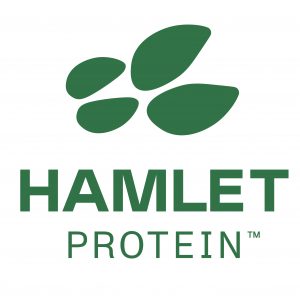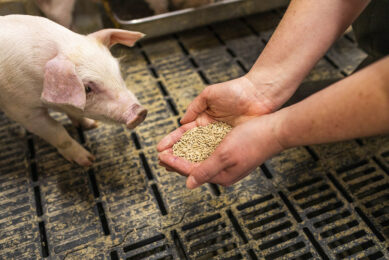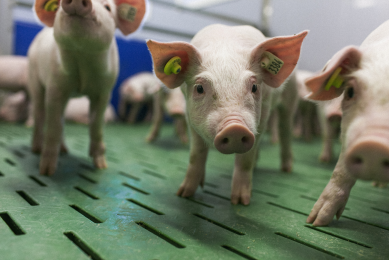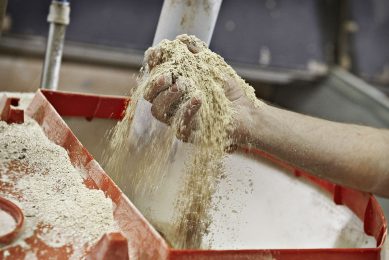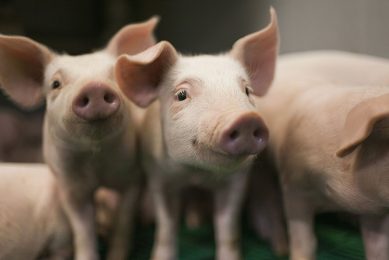Animal-based proteins can be replaced in diets
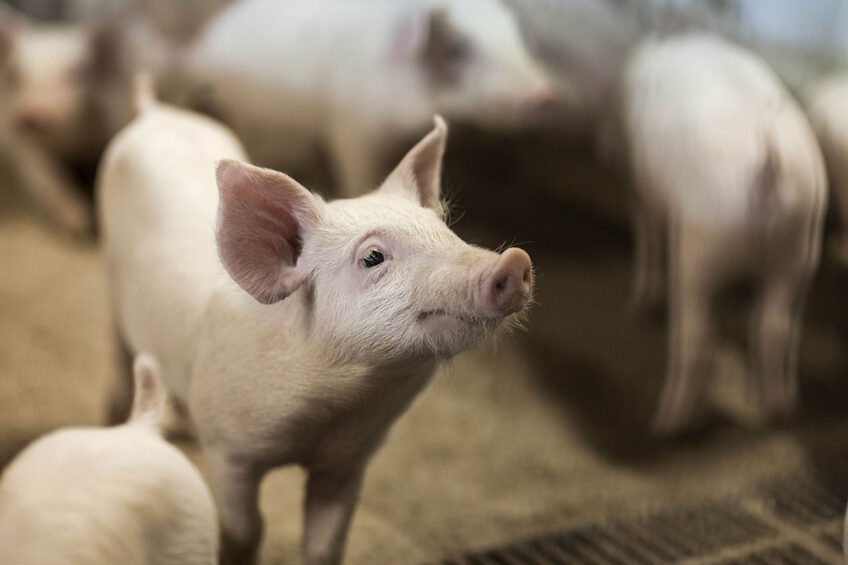
Nursery diets are usually a complex composition of expensive ingredients, needed to get piglets through their post-weaning phase. In times of increasing costs of fish meal, producers tend to look for other sources of protein components.
Of all the diet phases, nursery diets are consumed the least but are also the most complex and most expensive by volume. The lower the average weaning weight, the more complex the diets tend to be to encourage feed intake. There is high expression of the lactase enzyme at this stage of growth, so these diets typically contain lactose as a highly digestible source of carbohydrate.
Animal-based proteins may also be included in early nursery diets and serve as highly concentrated sources of amino acids, B-vitamins and minerals. These typically include rendered animal by-products ranging from blood meal, meat meal, meat and bone meal, poultry by-products and fish meal.
Fish meal can be a great source of digestible amino acids, but nutrient composition will vary greatly among sources. Fish meal is priced out of many modern nursery programmes that have access to alternative sources of protein. Meat by-products require the application of high heat to control pathogenic bacteria and viruses, resulting in variable nutrient content and quality. Spray-dried plasma has been shown to induce feed intake and supply immunoglobulins, specifically IgG, through the diet. The pig’s capacity to absorb immunoglobulins reduces drastically 24–36 hours after birth, indicating that the main benefit from IgG is to prevent the binding of pathogens to the gut wall.
Spray-dried plasma will drive up diet costs and should only be considered in intensive care diets to stimulate feed intake of weak pigs or in nursery programmes targeting traditionally hard starting pigs due to disease challenge.
Feeding all-vegetable diets
Feeding an all-vegetable diet to nursery pigs can be tricky but is possible with careful consideration of all ingredients coming into the diet. All-vegetable diets simply means the diets are devoid of animal-based proteins. There is nothing magical about these diets; in fact, grow-finish pigs are fed almost completely 100% plant-based diets apart from supplemented vitamins, minerals and crystalline amino acids.
The types of cereal grain and oilseed meal incorporated into the diet are dependent on the geographical region. In the US, corn and soybean meal are staples in pig diets at all stages of production. In other parts of the world, wheat or barley may be the main cereal grains, and soybean may be partially or completely replaced by rapeseed meal, cottonseed meal, copra meal or sunflower meal. However, anti-nutritional factors in some cereal grains (e.g. non-starch polysaccharides) and vegetable proteins (e.g. trypsin inhibitors, tannins, gossypol) limit their use in young animal diets.
The development of several specialty vegetable proteins with reduced anti-nutritional factors (such as HP 300) and the increasing availability of crystalline amino acids have made it possible to completely replace animal-based proteins in nursery diets without compromising piglet health or performance. Ingredient availability, commodity pricing, biosecurity or ethical concerns and the preferences of nutritionists often dictate which ingredients are incorporated into the diet formulation.

Generating nutritional ingredient profiles
Thanks to technological advances in analytical services, it is economically feasible to generate regular detailed nutritional profiles of ingredients. That development enables accurate and precise diet formulation while giving access to previously inauspicious feedstuff of unknown or variable nutrient profiles.
Nutrient analysis of incoming feed ingredients, regardless of whether they are of plant or animal origin, should be regularly conducted to minimise the risk of any unexpected nutrition-related issues on the farm. This is especially true for vegetable proteins known to have components that are detrimental to young pigs in high amounts, such as trypsin inhibitors, lectins, β-conglycinin, saponin, gossypol and other polyphenols.
Diligently balancing the amounts of these anti-nutritional factors that are introduced into the complete diet minimises the risk of negative effects on performance. Enzyme-treated specialty soy proteins do just that. By applying high quality raw materials in a patented bioconversion process, Hamlet Protein lowers the anti-nutritional factors while still maintaining good digestibility and an intact amino acid profile, ensuring better gut health and growth of young animals.
Replacing animal-based proteins
The growing trend of replacing animal-based proteins with vegetable proteins is more evident in the poultry industry. A vegetarian diet may reduce feed costs, but one of the main drivers to replace animal-based proteins in poultry diets is to capture growing niche markets that put a premium on food products labelled “organic”, “all natural”, “no antibiotics ever” or “fed an all-vegetable diet”.
There is also a desire to transition to all-vegetable diets to minimise the risk of necrotic enteritis induced by Clostridium perfringens associated with diets containing animal proteins. At the moment, a direct link between animal-based nursery diets and proliferation of C. perfringens has not been elucidated in young pigs.
Nonetheless, early adopters have already begun the transition to animal-free diets, mainly to address biosecurity and regulatory concerns. Besides, is it far-fetched to contemplate the potential spread of African Swine Fever virus through the feed that is reminiscent of the controversy behind the spread of Porcine Epidemic Diarrhoea virus to North America? Although there is currently little to no consumer demand for pigs fed diets free of animal protein per se, the trend will likely follow that of the poultry sector and prompt the ever-shifting swine industry to adjust.
References available upon request
By Diego Navarro, PhD, swine nutritionist, Hamlet Protein


